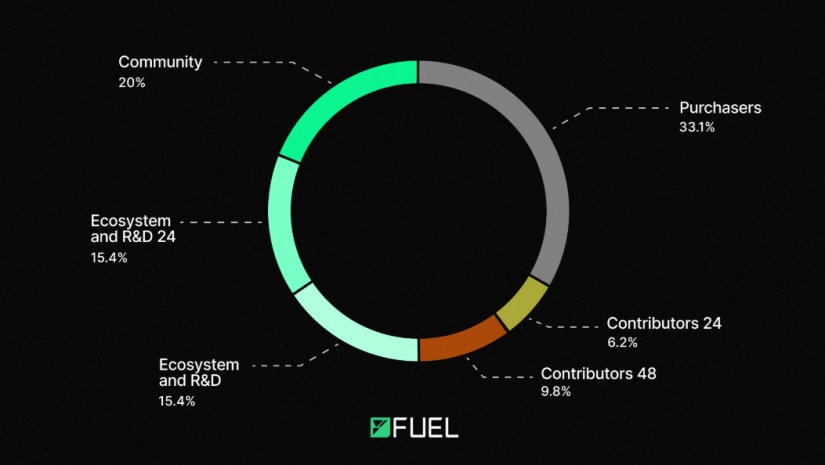TL;DR
- Fuel launches its native token, with a total supply of 10 billion units, to decentralize its network and eliminate transaction fees.
20% of the tokens will be distributed to the community, with incentives for participants in the Points Program and testnet users.
The network is moving towards a fully decentralization, implementing a proof-of-stake (PoS) model with Tendermint to improve security and resistance to censorship.
Fuel, the Ethereum-based optimistic rollup project, has announced the launch of its native token. The FUEL token aims to decentralize the network’s chain and play a central role in the economic structure of the ecosystem.
The issuance of FUEL, which will be an ERC-20 token with a total supply of 10 billion units, seeks to transform the user experience by eliminating transaction fees on the network. To achieve this, an innovative system known as “application-specific sequencing” will be introduced, allowing application developers to lock their tokens to ensure transaction order on their platforms, generating rewards while users can make transactions without additional costs. This mechanism aims to position the network as one of the most scalable and accessible solutions within the blockchain market.
How will the FUEL Tokens be Distributed?
20% of the FUEL tokens will be distributed to the community, with a particular focus on participants in the Points Program and testnet users. Additionally, it has been announced that the protocol plans to expand its user base through strategic partnerships with platforms such as Legion, Impossible Finance, and Bitget, through incentive programs.

Furthermore, Fuel is in a continuous decentralization process. In its initial phase, the network will be controlled by a limited number of validators, but the plan is to expand this number and achieve a fully decentralized sequencer network, which will improve resistance to censorship and network security. For this, a proof-of-stake (PoS) model based on Tendermint consensus will be implemented, allowing users to actively participate in transaction validation and earn rewards for doing so.
With these actions, Fuel aims to improve scalability, accessibility, and decentralization within its ecosystem, while also driving the adoption of blockchain solutions without the barriers presented by gas fees
